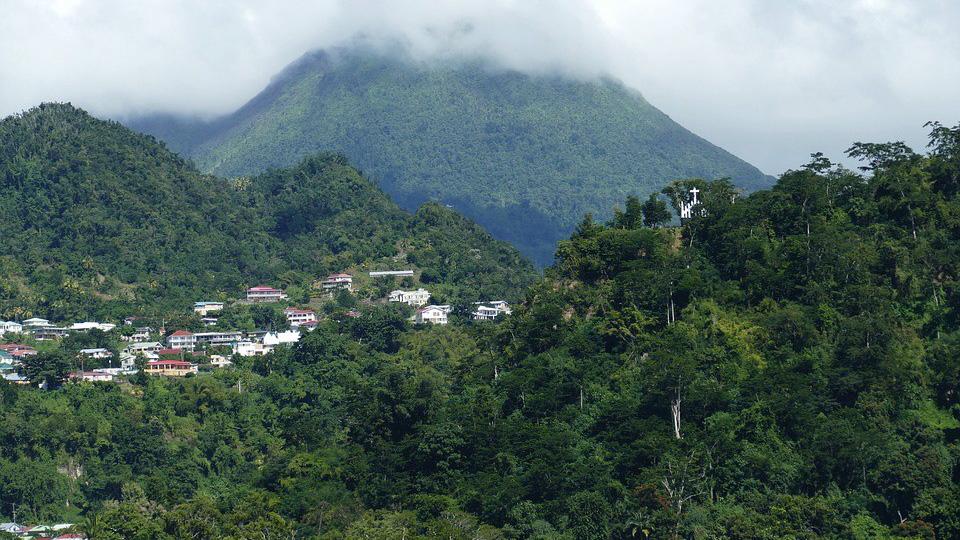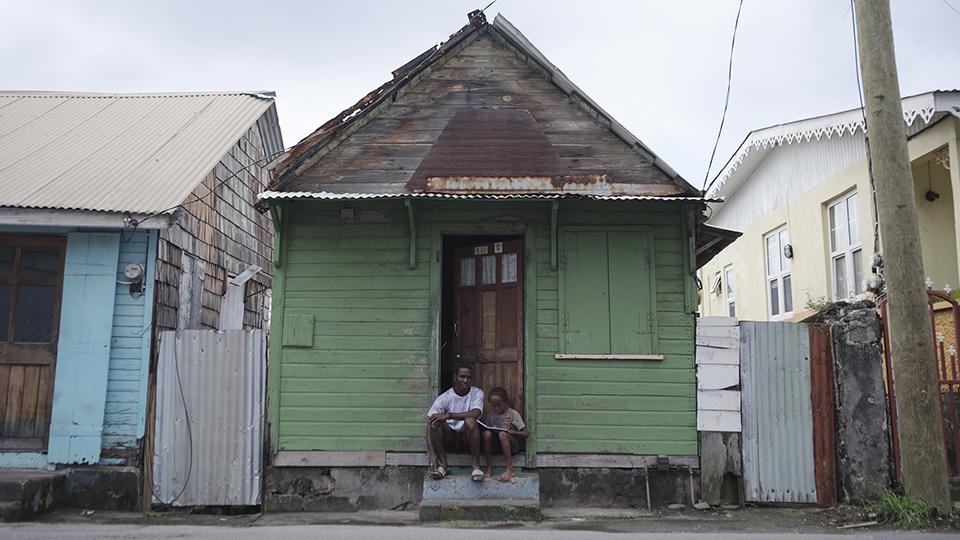Mapping hurricane recoveries in a warming world
Primary page content
A new Goldsmiths, University of London project will map hurricane adaptations, survivals and recoveries in the Caribbean, creating a resource to help mitigate future disasters.

Led by Dr Adom Philogene Heron (Department of Anthropology), Caribbean Cyclone Cartography (CCC) researchers will collaborate with communities based in Dominica (Eastern Caribbean) to collect oral histories of hurricane recoveries, which could help influence future disaster response efforts.
Combined with post-storm ethnography and hazard mapping, the project will develop an understanding of what hurricane ‘resilience’ might mean to Dominicans now and in the future, as rising sea temperatures produce ever-intensified storms.
The team is based across Goldsmiths, University of London, Mona GIS Institute, University of the West Indies, Jamaica and Create Caribbean Institute in Dominica – where fieldwork and project events are scheduled throughout 2021.
On the 18 September 2017, Dominica was devastated by category 5 Hurricane Maria. Lives were lost, families traumatised, and homes and livelihoods destroyed. Approximately 90% of the island’s buildings were damaged or destroyed, costing an estimated US$1.3 billion or 226% of Dominica’s GDP.
Months later the Dominican government vowed, with World Bank, Clinton Foundation and UN support, to make the country the world’s first ‘climate resilient nation’ – aiming to strengthen emergency response systems, infrastructure, housing and tourism facilities.
But despite these high-level goals, little is publicly known about how everyday Dominicans prepared for, survived and reassembled their lives after Maria and earlier storms. Nor is there a public record of how citizens understand the hazards embedded in their mountainous landscape (such as landslides, sea surges and flooding).
The CCC research team will develop collaborative methodologies to explore people’s lived understanding of, and questions concerning, the resilience agenda.
The project will develop methods that enable a deeper questioning: of how Dominican families survived historic hurricanes; how colonial and post-colonial inequities shape communities’ exposure to hazards; how the island’s creole wooden buildings have been able to withstand countless storms; how Dominican visual artists turned their practice towards collective healing in the wake of Maria; and how local farmers are adapting their planting practices in pursuit of food sovereign futures.

[Photograph by Dóra Papp]
CCC intends to create a public online map of Dominica that will stand as an archive of historic and recent storm recoveries, as well as identify hazard sites and shelters to mitigate future storm hazards.
Other project outputs include a Cyclone Conversations podcast, farmer knowledge exchange workshops, a visual arts exhibition and a series of Dominica-based symposia designed to bring project participants and collaborators into conversation with national and regional experts.
Dr Adom Philogene Heron, Lecturer in Anthropology at Goldsmiths, said: “We are delighted to get to work on a project that is many years in the making. Long after the camera crews and NGOS have left the island, and as most people continue along a steep path of repair, we hope that CCC can create spaces where Dominicans can document, reflect on and explore the various ways people make life in the face of past and future storms.
“Our research team members are either born in or have roots in the Caribbean, and we share a commitment to cooperatively produced research - towards healing, vernacular knowledge sharing and more egalitarian post-disaster recoveries. We are both excited and thankful for the opportunity to begin this work.”
CCC is a three-year UK Economic and Social Research Council (ESRC) Global Challenges Research Fund (GCRF) project led by Dr Philogene Heron, with co-investigator Dr Nishat Awan, an architect based in the Department of Visual Cultures at Goldsmiths, and project manager and sociology PhD candidate Annabel Wilson. The all-Caribbean investigative team is made up sociologist Dr Cecilia Green (Syracuse University), literary scholar Dr Schuyler Esprit (UWI & Create Caribbean), oceanographer Dr Ava Maxam (MGI, UWI) and disaster science and management PhD candidate Farah Nibbs (Delaware University).